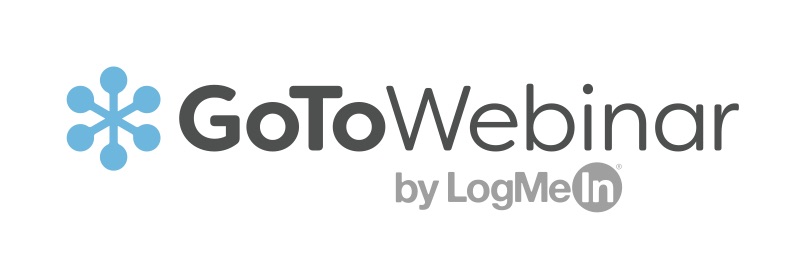Recently, I tried to explain to my kids how we navigated before Google Maps. Getting lost is something of a foreign concept to them: If we miss a turn, Google simply reroutes us. In the end, we lose a few minutes, at most.
Don't miss a MarketingProfs podcast, subscribe to our free newsletter!
Navigating business decisions is more challenging, especially with the breakneck pace of change in marketing and technology. Guiding principles are different for every brand, and only you can plot the right course. Still, navigation is always easier with a map.
Enter Jeremiah Owyang, founder of research and advisory firm Kaleido Insights. I invited Jeremiah back to Marketing Smarts to talk about his map of "The Six Digital Eras," from the early days of the Internet to the rapidly approaching future—a future in which we can use satellites as a service (seriously).
People (marketers included) are changing in light of trends that include digital detoxing, the collaborative economy, a renewed focus on using data to promote our physical and mental wellbeing, and more.
Here are just a few highlights from our conversation:
We want to "unplug," but we sometimes use technology to do it (05:26): "That trend is called 'digital detox,' just unplugging from digital. And there are organizations and camps and hotels that will take your phone from you so you can just focus on being alone or just being with other people face to face. We had the luxury of doing that when we were at the [Spark.Me] conference. We were actually face to face most of the time. Unfortunately, we fell behind in our work and our email as a result. That's kind of the anxiety you feel.
"Some families put all the phones in the middle of the table when they're having dinner, or they'll put them in a basket. There might be rules for other people to 'be present.' Those are all really good things.
"The other interesting trend is that we're now relying on technology to curb technology, or to police or referee. Such as the time spent on different apps using Apple or Calm or Headspace to help you with meditation. That's part of what we call modern wellbeing. So, it's pretty ironic when we turn to tech to become more human."
Most of us are "serfs" in the collaborative economy (Ouch!) (12:16): "There's three major classes. There's the kings who have the wealth and they grant the land to the lords who have the castles. And the lords 'hire the serfs' to do the work. Those are the three major classes. And the same thing has happened here with the collaborative economy.
"So, the 'kings' are now the venture capitalists or the investors who grant the money to the entrepreneurs who start these amazing marketplaces like Uber and Airbnb. And if you cannot relate to one of those two classes, then you're probably a serf, because you're doing the work, you don't own it, you're not generating value.
"You don't have those assets growing. You're the ones maintaining that. If you're offering your car, your home, or your time, and you're managing your taxes, and you're supporting and managing the asset versus the tech entrepreneurs. The tech entrepreneur is not. 99% of us are serfs."
We have more data than ever to optimize ourselves and our environment, and we're obsessing over it (16:32): "We have identified 400 to 500 startups that are trying to impact mind, body, community, and physical space around us and improve our wellness or wellbeing. This ranges from mindfulness apps to therapy bots to air quality to microbiomes to physical fitness and activity to step tracking. It goes on and on and on and on. The leaders in this space would be Peloton and MyFitnessPal and Apple and Amazon and Google and Fitbit.
"The question is, how much information do we need about ourselves? There's a risk that we start to become paranoid, like 'oh my gosh, I only did 9,990 steps today. I'm deficient. I'm missing those 10 steps. I better get up out of bed at 11:50 p.m. and get those steps in or I don't close my rings.'
"And how much do you really need to know about your gut bacteria in order to have a good day? Are you short or deficient 10 minutes of sleep? Maybe you shouldn't take that meeting in the afternoon after all. How much do we really need to know? We're going through that process now."
Satellites as a service will be the new "SaaS," and marketers can reap the benefits (21:39): "People are spending a significant amount of money...to have data recorded and streamed and accessed. I can imagine people would spend another $20 or $50 a month to have a satellite overlooking your home while you sleep at night.
"Or you might want to track in real time the traffic patterns to a particular location, or source where your food is actually coming from and see how it travels to you. Or look for people that are lost or having emergencies, which these satellites can see through smoke or clouds or even rain. Or track who's actually polluting in the ocean, dumping things over the barges. Or which power plants are actually creating emissions. All of this data will soon be available. Everyone will have 'God view' using simple satellite as a service data.
"Marketers could track the individual foot traffic to your retail stores or see how many cars are in your competitors parking lot. Or [see] what time do people show up to work, really. So the amount of information that can be gleaned for marketers is tremendous. This is about to release this fall on Amazon Ground Station, and we'll see it in other places, as well. It's pretty radical, the amount of information we're about to get."
To learn more, visit KaleidoInsights.com, and be sure to follow Jeremiah on Twitter @jowyang.
Jeremiah and I talked about so much more, so be sure to listen to the entire show, which you can do above, or download the mp3 and listen at your convenience. Of course, you can also subscribe to the Marketing Smarts podcast in iTunes or via RSS and never miss an episode!
This episode brought to you by GoToWebinar:
GoTo Webinar makes it easy to produce engaging online events. Whether you want to connect with your prospects, customers or employees, GoTo Webinar has the tools and analytics you need. Start creating interactive and educational webinars your audience will love.
Music credit: Noam Weinstein.
...sign up for free to continue reading
Don't miss a MarketingProfs podcast, subscribe to our free newsletter!
Published on July 11, 2019





 Jeremiah Owyang, entrepreneur, speaker, and analyst, and founding partner of boutique research and advisory firm
Jeremiah Owyang, entrepreneur, speaker, and analyst, and founding partner of boutique research and advisory firm 
